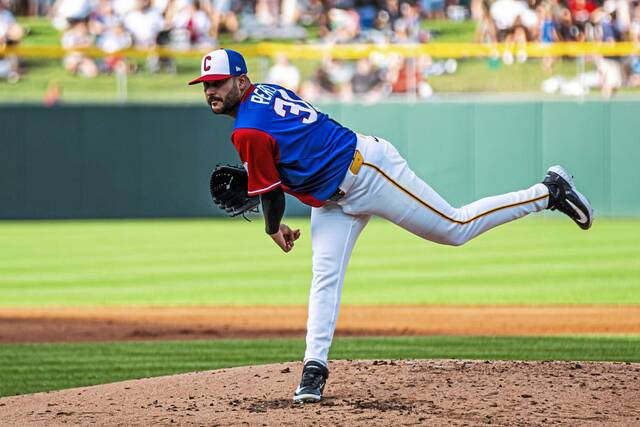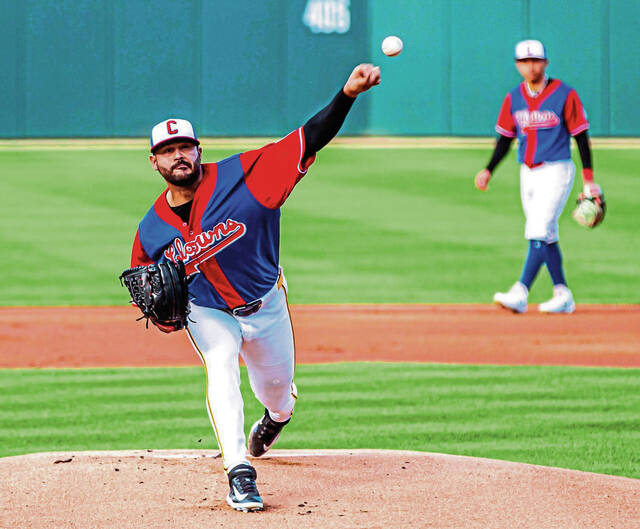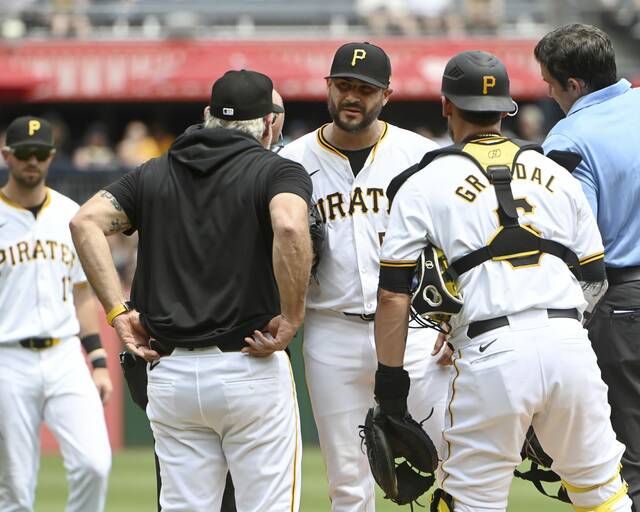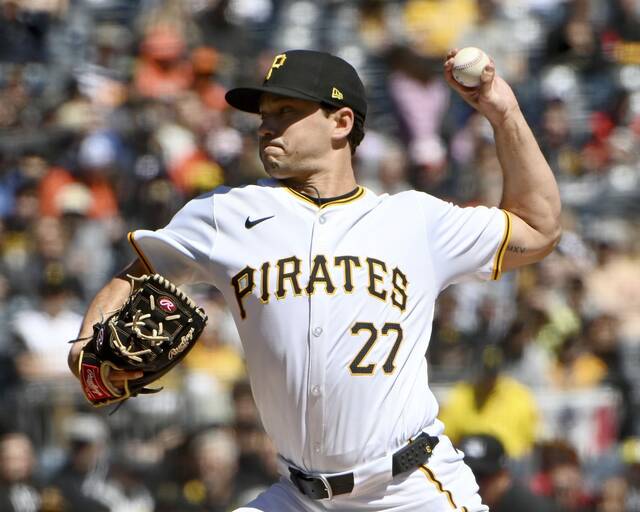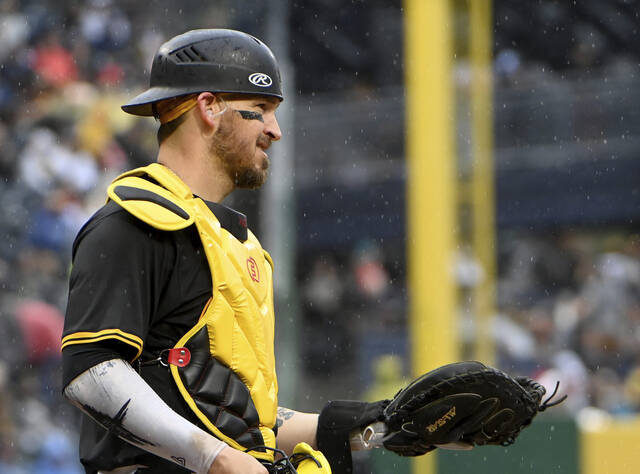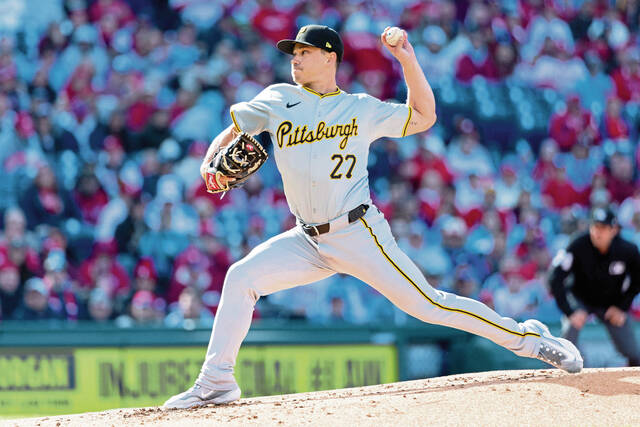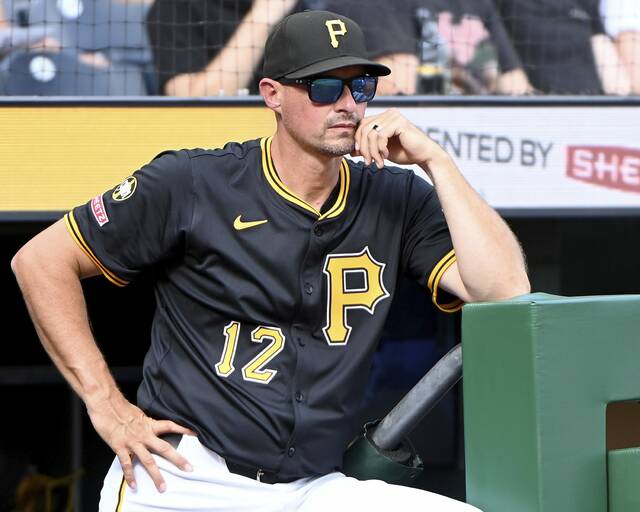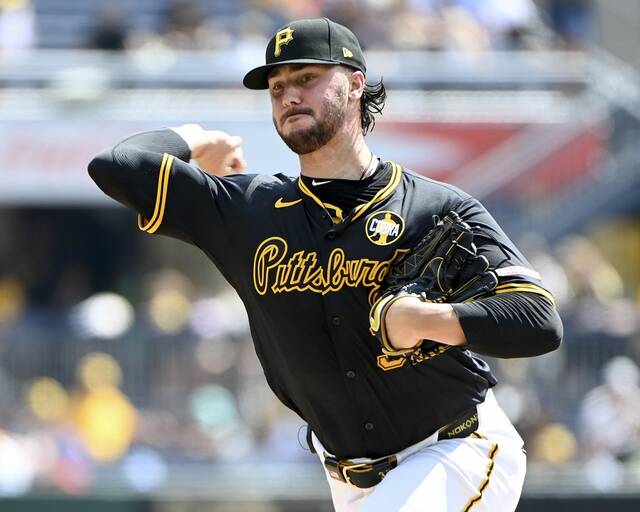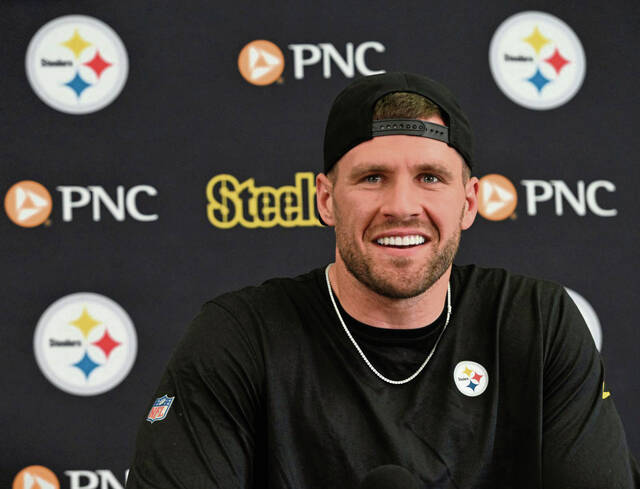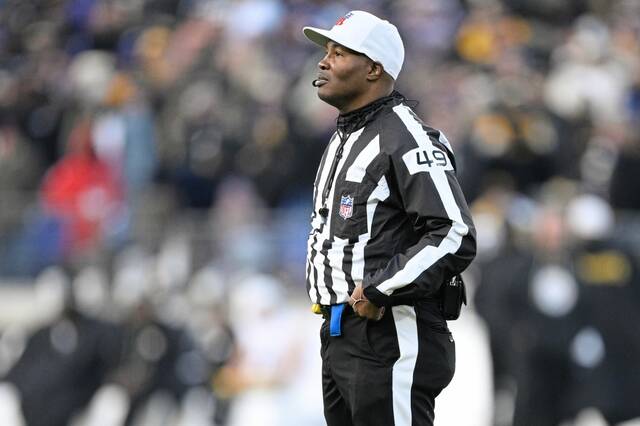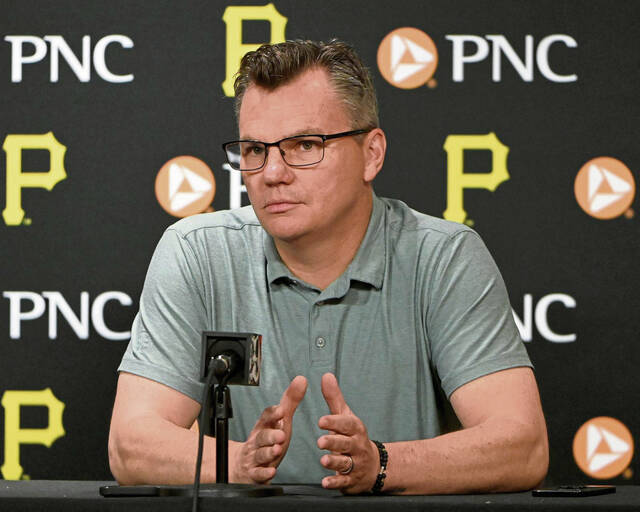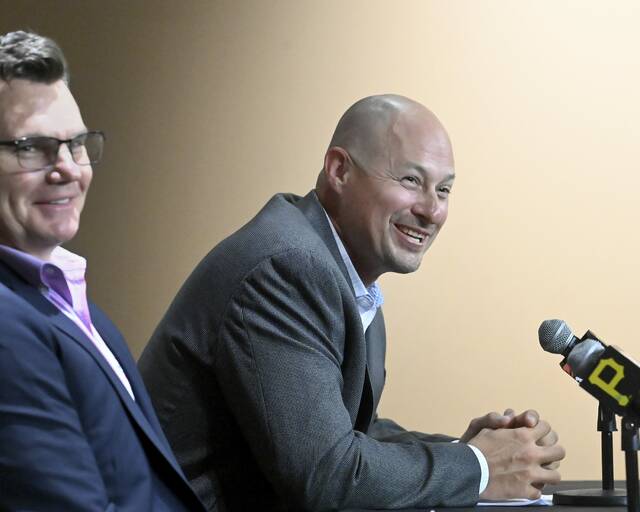That Martin Perez was packing a bag at his locker in the Pittsburgh Pirates’ clubhouse was a telltale sign the veteran left-hander was leaving for the minor leagues.
And it was anything but a demotion.
After throwing a live bullpen session last week, Perez told the Pirates he wanted to face hitters and was willing to make a start at Triple-A Indianapolis on a rehabilitation assignment. Perez left the decision up to the front office, coaching and sports performance staffs.
“I’m ready. I know I can’t pitch here,” Perez said last Friday. “It’s better if I go out there and get built up a little more. … I’m not going to rush, get hurt again and go back on the (IL) for another month or two.”
The 33-year-old Perez pitched in the minors for the first time in six years Saturday, throwing 63 pitches over five innings. After being on the 15-day injured list since May 28 with a left groin muscle strain, Perez rejoined the Pirates in Cincinnati and is expected to be activated Friday so he can start the three-game series opener at Atlanta.
Perez became the eighth Pirates player to make a rehab start for Indianapolis this season, a number that increased when lefty reliever Ryan Borucki and right-handed starter Quinn Priester joined the Indians this week. It will go up again when lefty starter Marco Gonzales, out since April 14 with a left forearm muscle strain, begins his return.
The rehab assignment is an important step in the process for players who have spent long stretches on the injured list to return to the major leagues. For four Pirates 30-somethings, it serves as a reminder of where their journey began, an opportunity to play with promising prospects and a chance to splurge on food for hungry minor leaguers.
“Any time we get our veteran guys around younger guys — we don’t want to do it because of rehab — I think it’s important,” Pirates manager Derek Shelton said.
Most importantly, it serves as a light at the end of the tunnel for players dealing with the downtime from an injury and the gradual buildup until they are ready to return to playing baseball at its highest level.
“Just trying to balance the expectations against the reality with it is probably the hardest part,” said Borucki, 30, out since April 7 with left triceps inflammation. “It’s really hard to stay the course of not taking it too high because you want to get back mentally and want to be playing these games, but you have to understand what the load of a big-league season is. … I’ve had it happen in my career a lot where I come back too soon and two weeks go by, and I’m right back in the same position I was when I first got put on the injured list.”
A rehab assignment proved valuable for catcher Yasmani Grandal, who started the season on the injured list with plantar fasciitis in his left foot. That Grandal was able to catch rookie right-hander Paul Skenes and relievers Daulton Jefferies and Kyle Nicolas for the first time at Indianapolis before they joined the Pirates “helped out a ton.”
Skenes said the same was true for him, noting that Grandal called the game “different, in a good way.”
“Between starts, being able to pick his brain and listen in to how he goes about game planning and how he goes about calling the game, that kind of thing, and then listening to guys like that talk, they’re just like an encyclopedia of how to get guys out,” Skenes said. “You can ask him about any player and he’ll tell you how to get him out, which is, it’s really cool for me.”
A former first-round pick who became a two-time All-Star, the 35-year-old Grandal used his time in the minors to share some of his major-league experience with Pirates prospects in hopes it would prepare them for a promotion.
“You’re in the minor leagues. You’re not really going to get the full major-league experience,” said Grandal, a 13-year veteran. “Every time I’ve gone down to do a rehab assignment, I treat the game the same. It don’t matter if I’m in the big leagues, minor leagues, college or high school, I’ve always treated the game the same: I’m going to play as hard as I can. I’m going to bring the most amount of intensity that I can.
“And I want to let guys know whenever they’re messing around, in between the lines we’re trying to win this game. It doesn’t matter where you are. That for me was the main point: This is how we do it up there. This is what we’re going to try to do here so when you guys get up there, it’s smooth sailing. At the same time, you can’t always be at 100. You’ve got to have those conversations. You’ve got to start building relationships with guys you think you might see. You’ve got to try to help out as much as you can. That’s pretty much what I did.”
Grandal also made sure his teammates got a taste of what it’s like to eat like major leaguers, but it came with a condition: “I told them, ‘If we start winning, you guys get pre- and postgame (meals). I did that for like 14 days then was like, ‘All right, no more. You guys have been eating good for the past two weeks.’ To me, it’s setting the tone for when they get here.”
Gonzales, 32, got that experience as a prospect with the St. Louis Cardinals when starting pitchers Chris Carpenter, Michael Wacha and Adam Wainwright and catcher Yadier Molina did rehab assignments. So Gonzales is excited about the opportunity to pay it forward, whether it’s with words of advice or by paying for a few meals.
“Hell yeah, that’s what it’s all about. It’s an honor to possibly be in that position,” Gonzales said. “I remember when guys would come back. You’d hear that this guy might be coming, and we’d all get super excited because A, we knew we’d get some good spread and B, it was cool just to be around a guy like that. To be in those shoes, it’s humbling now, looking back. I don’t take for granted the process I had to go through in the minor leagues. If I can be of help to anyone, that would be pretty cool.”
For now, Gonzales is concentrating on helping himself. After undergoing surgery last season, he was shut down after only three starts and is slowly building up his pitch count. He threw three bullpen sessions and a live batting practice and was scheduled to throw another at Altoona this week. That could determine whether he’s ready to begin the first rehab assignment of his career, as his previous injuries were either short-term or season-ending.
“I need to rehab. I need to get on an assignment,” Gonzales said. “In order for me to be successful at this level, you have to go and get in games. There’s no other way to do it. You can simulate … but it’s just not the same. You need a game, the environment. … I’m actually looking forward to that possibility, I really am. I’m looking forward to getting back in that environment and ultimately competing, getting a chance to pitch again.”


